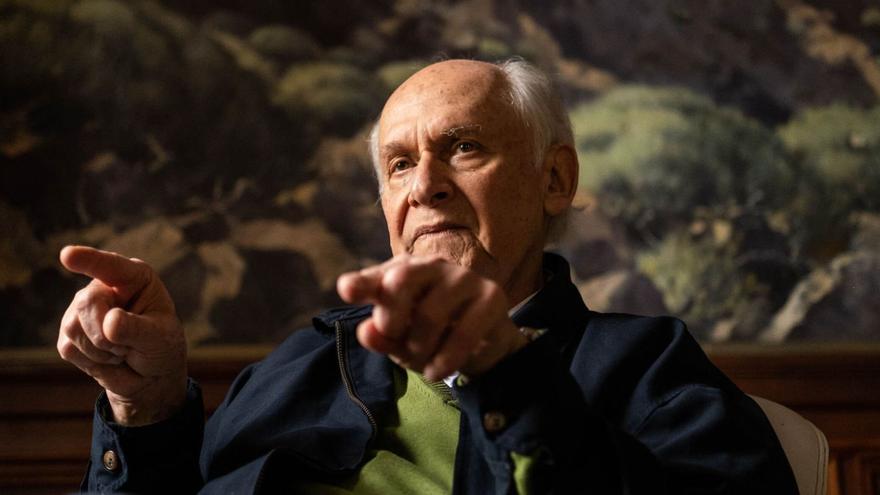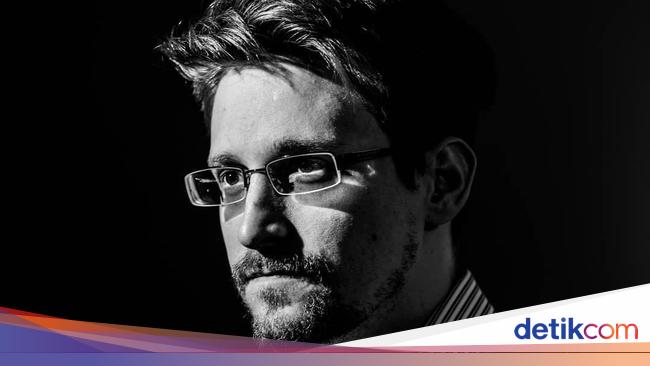Do you have any news about the studies you continue to conduct to find the long-awaited malaria vaccine?
I swear and promise that what I find I will never donate to the World Health Organization (WHO) again. He did nothing with the malaria vaccine, he didn’t move a single muscle. He didn’t do anything. This forced us to hit the brakes. She was set aside and died there. We have been involved in this project for more than 40 years. We had a first vaccine in 1987 and clinical trials lasted until 1994. We achieved 30 to 40% reliability with vaccinated people, but instead of relying on that work [Centro de Investigaciones Biomédicas Manuel Elkin Patarroyo] they chose to produce a vaccine funded by the multinational GlaxoSmithKline (GSK). Its validity was less, but that bet cost about 2,500 million euros. What was your eye like?
But despite that hard setback, he didn’t give up.
No [silencio]… When we decided to find the missing part, we saw that the first results were achieved relatively easily, in less than six years, but with malaria we were setting the rules of the game to promote any vaccine. It’s not like we were looking for a universal formula, as we used to say, but if you know what the chemical, physical and mathematical rules are, it can be applied in other vaccines. This was why we delivered a hexavalent vaccine against the disturbing variants of SARS-Cov at the end of May. We were vaccinated against a single strain [Wuhan] and now, as a great result, they point out that they will protect us for Omicron, which is two. My team has one in six and has already finished one in eight, although that study has not yet been published by the scientific community, despite the monkey tests being finished. What does it mean? That the rules of the game we have discovered for stopping malaria are fully applicable to other vaccines.
This all sounds like a plot against you, doesn’t it?
Well, I have dedicated my whole life and that of my institute to this. There is no need to tell you that we have really been beaten: in the last 16 years we have worked without an official budget – the Colombian government does not give us even a meager penny – and, as if that were not enough, the pharmaceutical multinationals have decided to close the institute.
So is he an enemy? [las multinacionales farmacéuticas] hard to fight?
Tell me or tell me? We are very ethical, because we do nothing for humans without first testing them on experimental models, that is, on animals. Especially using the monkeys of the Amazon. They sealed off the headquarters we had in the Amazon; They locked him up 11 years ago.
How did you manage to measure the reliability of the SARS-Cov vaccine you released at the end of last May?
They gave us permission to experiment with 200 little monkeys [pausa]… When I say we use monkeys, I tell you that these animals do not die: we vaccinate them, analyze their immune response and release them into the jungle. It has always been like that. When we decided to develop the malaria vaccine, we did the same thing. I understand there are people out there who say it only worked 40%, but I don’t accept any allegations that have to do with our work ethic.
When you say that the “method” of a vaccine is used to develop others, do you mean that it was very useful in finding the first formulas with which to fight the coronavirus?
Do you think it was fast?
It was not?
Nothing, it was useless … I’ll explain it quickly. The method that was used for the production continues to be that of 1924 because they are the same biological molecules [RNA, DNA o proteínas recombinantes]. Instead, we try to find out how they are made and chemically produce them. This is as simple as knowing what’s in an aspirin: acetylsalicylic acid. All you have to do is try to figure out how it’s done to start making it happen. This is the concept that exists around synthetic vaccines.
So you insist it wasn’t as fast as it sounds?
45 days after the molecule structure was given, AstraZeneca’s was already there and 1,157 people were vaccinated. This implies that it has not carried out any animal testing. Moderna made it public after 60 days and, finally, Pfizer practically at the same time.
What have you learned from this health crisis?
The pandemic has served to unveil the management of pharmaceutical multinationals. Pfizer’s net profit last year was € 36 billion, Moderna put € 34 billion in its cash register and AstraZeneca over € 32 billion. Since I have lived in that world for more than 40 years, I know them all and, therefore, I am not lying when I say that the five pharmaceutical companies that led the vaccination process against the virus[AstraZeneca, Pfizer, Moderna, Johnson & Johnson y Sinovac]In 2021 they entered the equivalent of the current Spanish debt. Interesting, right?
Are we “living” in the age of vaccines?
That era you speak of should have started a long time ago, but the methodology used by pharmaceutical companies has been the same since 1924. What has changed, thanks to technological improvements, is production. The conceptual change when making a vaccine is what we propose: resorting to chemistry and recognizing where each atom is because no one knows how the hell the others are made. They put Pfizer, AstraZeneca, Johnson & Johnson, Sinovac or Moderna in it, but we don’t really know where each atom is. If we knew we would have the possibility to modify the molecules, but no one will tell us. At most they’ll tell us it’s acetylsalicylic acid, right?
And what do we do with Africa?
The only problem, which is not small, is the worldwide disinterest in Africa … How is it possible that because we belong to a different culture, because of the color of our skin or because we have a different religion, most of us do we have a different attitude? absolutely contemptuous towards these people? Everything we develop goes to the African continent; We have never turned our backs on malaria, on SARS-Cov, on tuberculosis, which caused so many losses in that forgotten world … Let me tell you something very personal. My father, who was a simple farmer, used to tell me: if no one knows where we are going, who decides who is saved. Who? With Africa, what it touches is more than a leaflet, this is how we truly heal from the guilt we have for turning our backs on it for centuries … Now or never.
Taking advantage of the fact that I have it close by, I propose a curiosity; Do you think the Chinese manipulated the virus that triggered the health crisis?
No [silencio]. Those are just conspiracies, but it’s true that humans are penetrating territories we’ve never visited. We want to access hidden spaces that until recently were occupied by animals in continuous symbiosis. Nothing strange happened there. In Wuhan they did not manipulate the virus … In China they eat everything, even big bats.
Is there a lot of espionage in the world of science?
What exists is caused by money … Science is a precious tool of power that distinguished scientists, which we all have in our heads, have used to make atoms. The problem is that those who came after took advantage of these discoveries to fabricate the nuclear weapons with which Putin is threatening all of humanity. I’m sure you can do it, don’t make mistakes. Science is a food of economic, social and political power.
Are we more exposed to chain pandemics?
Yes, in a way that is still unimaginable. We have occupied areas of the Amazon that do not belong to us, we devastate them with extreme anxiety [causando una deforestación preocupante] and the animals had to flee to unknown territories, some quite close to our cities. If we start interacting with them, we could find ourselves in a situation similar to that which occurred in Wuhan (China). Yes, we are increasingly vulnerable to the unknown …
Is that vulnerability you speak of in the case of the Canary Islands more troubling due to the fact that they are located in the middle of three continents?
The Canary Islands are a territory vulnerable to the risks of tropical diseases. All the factors surrounding the Archipelago – its proximity to Africa, migratory movements, sea currents, etc … – justify the great work of my friend Basilio Valladares at the head of the Canary Foundation for the Control of Tropical Diseases. This rapid diagnosis center has its reason for being in a community so exposed to factors beyond human control.
“There is still everything to do”
It may be tempting to believe that interviewing a world-renowned scientist, honorary doctor of more than thirty universities, who has been flirting with the Nobel Prize for many years. [por los docentes que influyeron en su formación y por estar en la quiniela de favoritos] and the Prince of Asturias Prize for Scientific and Technical Research (1994), among many other awards, comes wrapped in a notable aura of difficulty. Nothing is further from reality. Colombian immunologist Manuel Elkin Patarroyo (1946, Ataco – Tolima) is not just wisdom, but pure simplicity. “I am still a scientist who has to do many things”, says the protagonist of the conference which this afternoon, at 7 pm, will take place at the College of Pharmacists in the capital Tenerife. Access is free up to full capacity.
–
–


